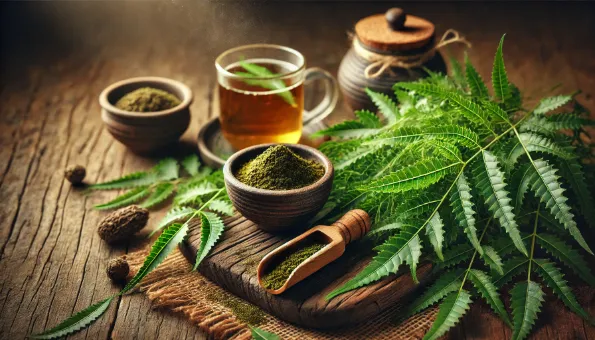Neem Leaves: Bitter Green With Potent Medicinal Properties
Neem leaves are traditionally used for their antibacterial, antifungal, and immune-supporting properties.

What Are Neem Leaves?
Neem (*Azadirachta indica*) is a tree native to India and Southeast Asia. Its leaves are small, pointed, and bitter, used for centuries in Ayurveda as a natural remedy for skin, digestion, and immunity.
Nutritional Profile
Neem leaves contain:
- **Polyphenols** and **flavonoids** with antioxidant properties
- **Nimbolide** and other bioactives with antimicrobial effects
- Small amounts of vitamins (C, beta-carotene) and minerals (calcium, phosphorus)
Health Benefits
- **Immune Support:** Bioactive compounds stimulate immune response.
- **Antimicrobial:** Traditionally used to fight bacteria, fungi, and parasites.
- **Skin Health:** Neem paste or tea is applied for acne, eczema, and wounds.
- **Blood Sugar Support:** Early studies suggest neem may help regulate glucose levels.
Potential Downsides
Neem is very bitter; excessive intake can cause nausea or stomach upset. Pregnant women should avoid neem in medicinal doses. Always consult a professional before using neem as a supplement.
How to Use
Neem leaves can be steeped as tea, ground into paste for topical use, or dried and powdered as a supplement. Traditionally, a few tender leaves are chewed daily for general wellness.
Summary
Neem leaves are powerful natural allies for immunity and skin health—best used in moderation and with professional guidance.
- 1. Neem Leaves
listovi neem drveta (Azadirachta indica), gorki, poznati po antimikrobnim svojstvima

